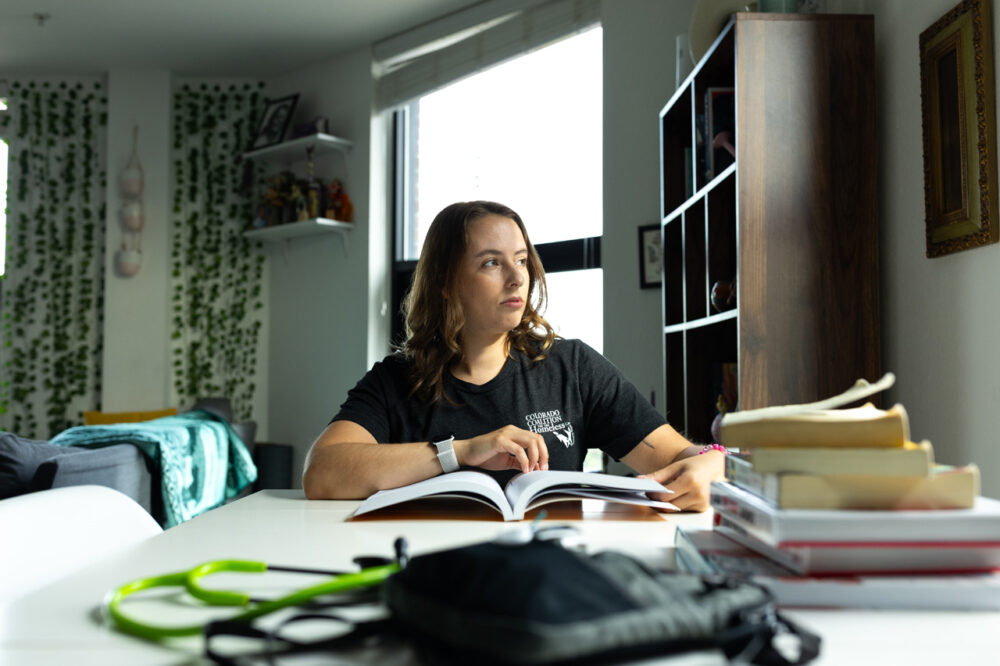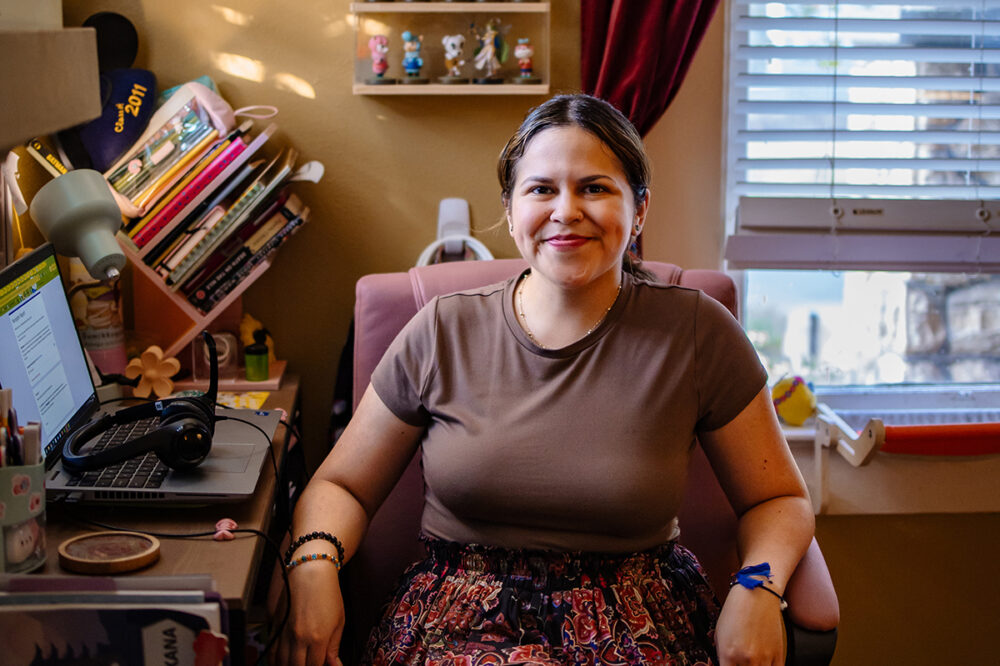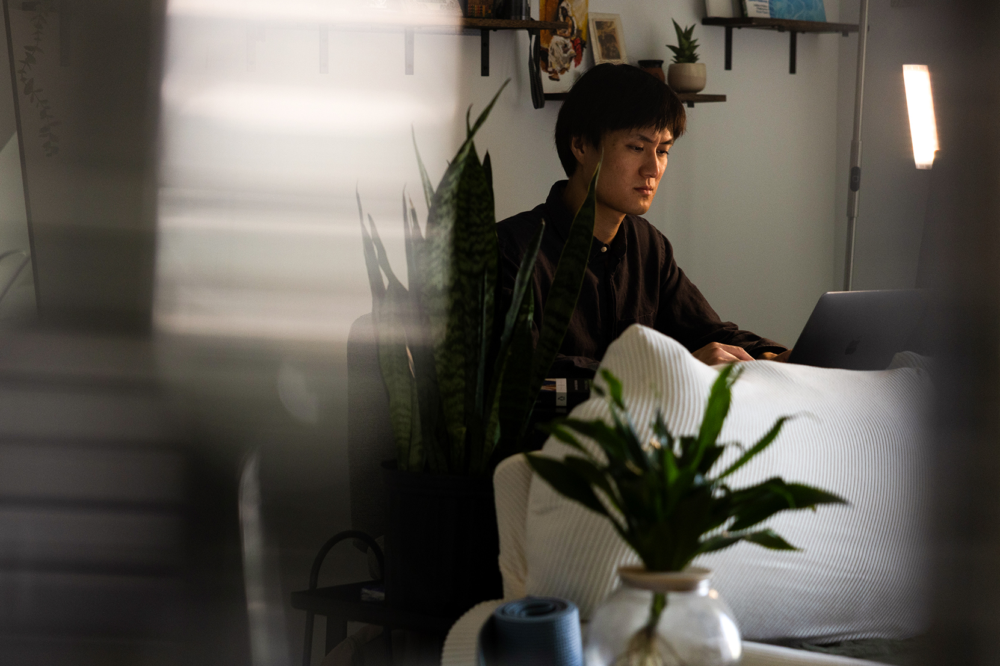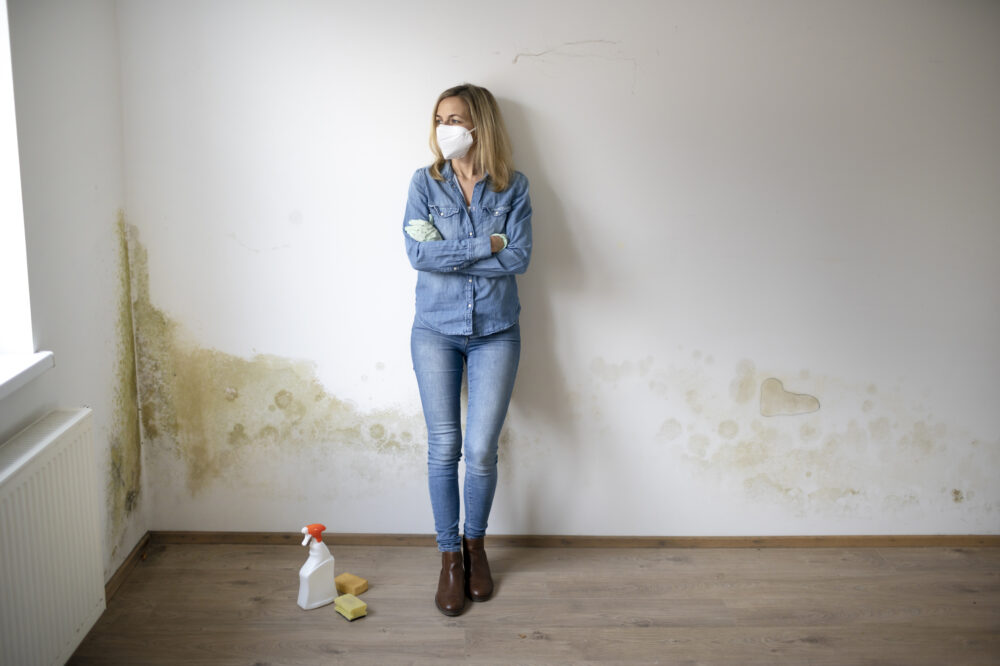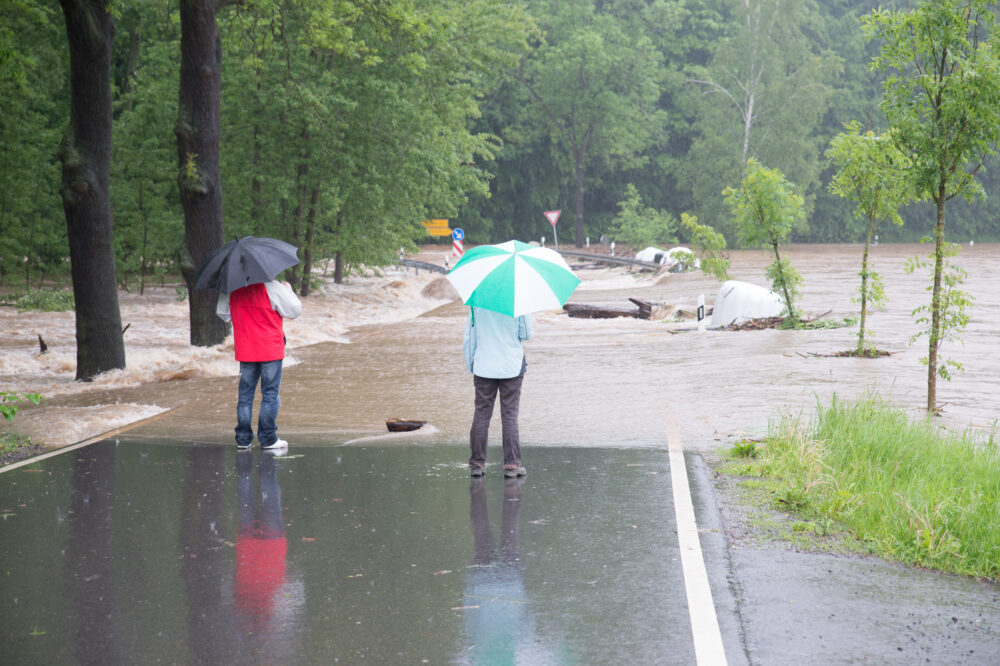Surviving LA’s Wildfire: Bryce’s Story
Facing LA’s wildfires, Bryce had an impossible choice: stay or flee? Hear their firsthand account of surviving the blaze, grappling with the decision to stay, and facing financial hardship. A story of living through a climate disaster and the resulting deep-seated uncertainty about the future.
By Financial Health Network
-
Category:
-
Tags:
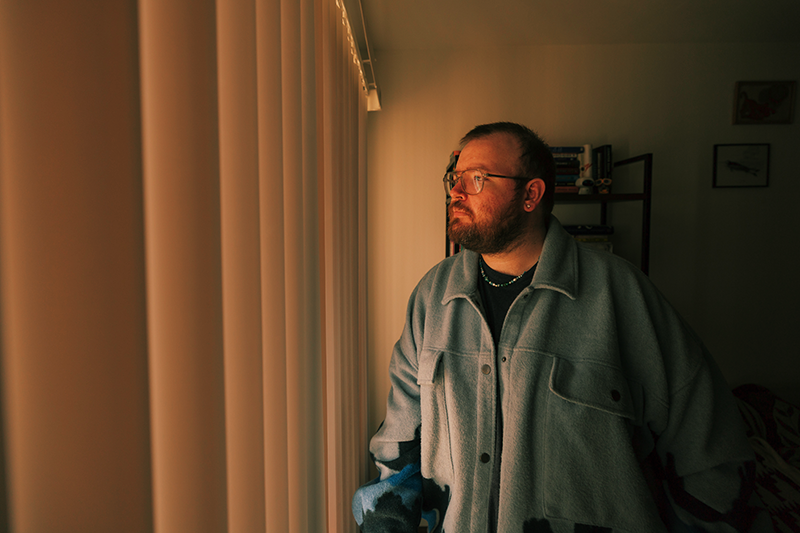
As wildfires spread rapidly across Los Angeles in early January 2025, Bryce Fallon was one of thousands surrounded by the blaze. Even as nearby friends voluntarily evacuated, Bryce – who is nonbinary and uses “they/them” pronouns – wasn’t sure how to stay safe. They had nowhere to go and continued to monitor the situation as smoke from nearby wildfires choked the air. Often, Bryce would see billowing flames after returning home from work.
“I had to ask my family to help me make rent…there was a natural disaster – I couldn’t work.”
Another challenge: As a renter earning a living in freelance film production, Bryce did not have sufficient savings to relocate farther from the fires. On average, renters are younger, more racially diverse, and earn lower incomes than homeowners – just 13% of renters are considered Financially Healthy, compared with 42% of homeowners. Instead, Bryce decided to stay put. Hardly leaving home for three weeks, they stocked up on food for the one-bedroom apartment they share with their cat, Clover, and slept on the living room couch, which was closest to the exit in case they needed to run.

Bryce with their cat, Clover, inside their Valley Village apartment kitchen. The pair lived off stockpiled food and water for three weeks during the L.A. wildfires.
In total, roughly 180,000 people were under evacuation orders during the fires in Los Angeles County, with tens of thousands temporarily or permanently displaced. Though Bryce feels lucky that they never had to leave, the climate disaster – a series of 14 fires with 100 mile-per-hour winds that burned nearly 89 square miles of land and 18,000 structures – left them with lasting financial and psychological scars.
Here’s their story.
It was intense preparation. Living in Los Angeles, I already had an earthquake bag with food and different supplies ready, but then I started to pack up anything that was more sentimental. I didn’t want to have to scurry for it in a rush. I packed Christmas ornaments and other family heirlooms, because you can’t really replace them, along with important documents and photographs. It helped reframe what in my life is actually meaningful to me.
I also got my disaster prep bags out of the closet, just to have those available. So many people were looking at climate apps, and everyone was monitoring and getting notifications about the fires. For about two weeks, I was just really tracking that and seeing what the growth was like.
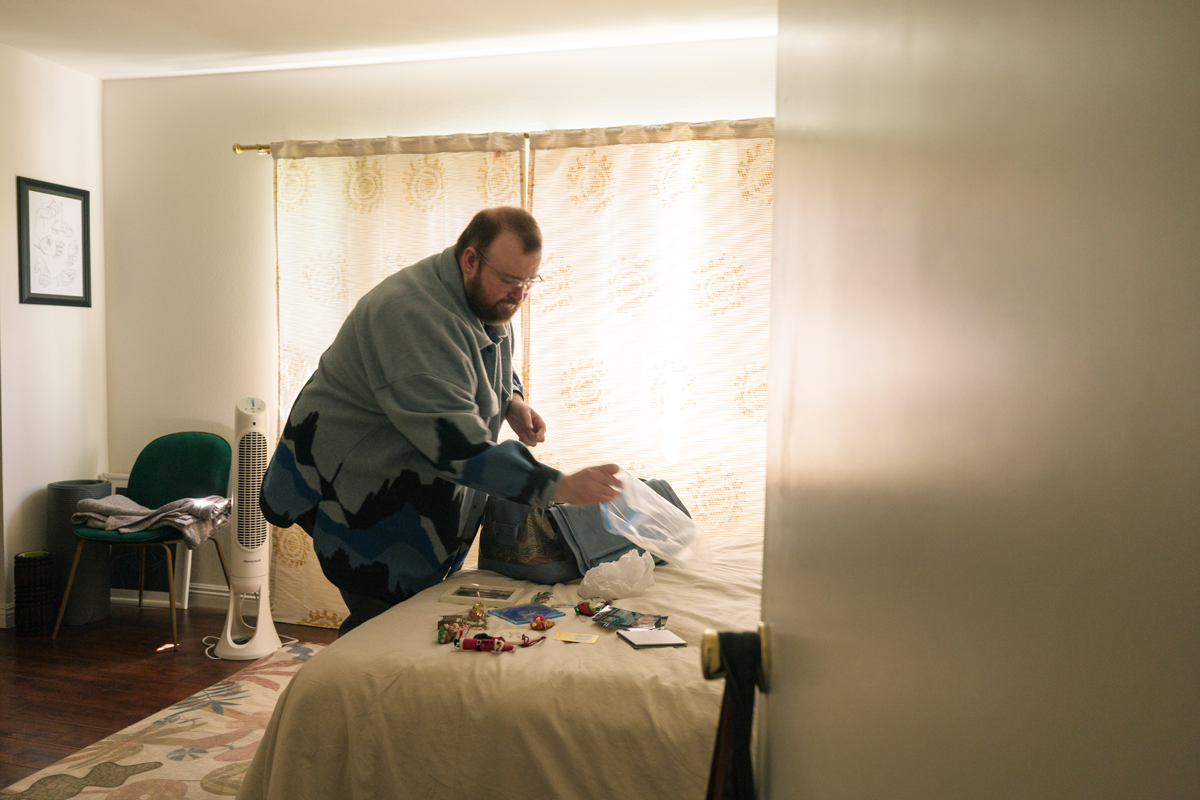
Choosing which sentimental items made it into their emergency bag was an emotional experience for Bryce: “I knew that if it was gone forever, it would really affect me.”
When the fires got closer, I was afraid to leave my apartment. I became kind of a shut-in because I didn’t want to let any more of the bad air in than already was coming in. The fact that I was alone only compounded my anxiety; the environment of Los Angeles was not very habitable for a very long time. I was wearing intense KN95 masks outside for like a month.
A MacGyver friend made an air purifier for me. I did not have one, and that was a big concern because the cheapest ones were around $60, which was not a small fee for me, considering I had lost days of work.
-
Packing up family photos.

-
Fitting a life’s worth of belongings into a getaway bag.
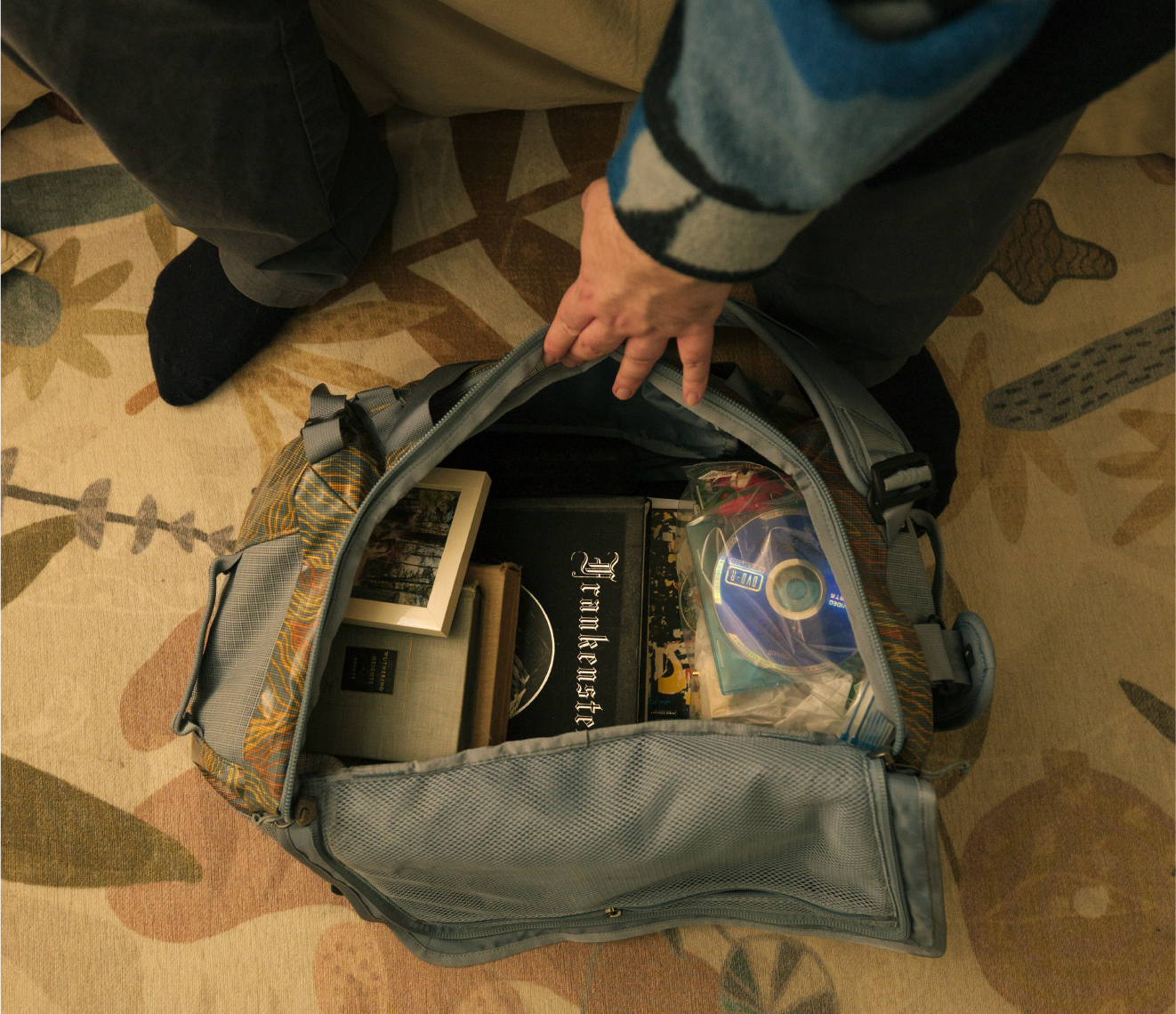
-
A homemade air purifier fashioned by a friend.

I moved out to Los Angeles in my last semester of college. I studied screenwriting and originally wanted to be a TV writer. It’s a rough gig. Most recently, I do more development and production for feature films. The work I do is on a freelance basis, so when I lost days of work during and after the fires, it was really impactful.
I just had to try to find other sources of income, but it was difficult. Eventually, I had to ask my family to help me make rent that month. It was not a very easy thing to go about doing. They were thankfully understanding. There was a natural disaster – I couldn’t work.
My approach toward my whole life changed in regard to where I live and how I live. This is not the first time I’ve dealt with fires in Los Angeles, but this time changed a lot about how I view the longevity of living in this city. I would be driving down the 405 and see on both sides of me that hills are on fire. I was safe this time, but who says it’s always going to be that way?
“I don’t know if I will ever feel comfortable living anywhere that isn’t just concrete and pavement.”
Right now, it’s just about rebuilding savings for me. I have had renters insurance since I moved out here; it was kind of like a non-negotiable and required by the landlord. After this experience I do not trust a renters insurance or any insurance company to really be able to replenish my life in the way that I maybe would have believed they could have beforehand. I also need to be able to have savings so that in case something bad happens again, I have that to protect me. If I [had] really needed to take care of myself this time, I don’t know if I would have [had] everything that I feel like I need.
-
“This is not the first time I've dealt with fires in Los Angeles,” Bryce says. “It does change a lot about how I view longevity living in this city.”
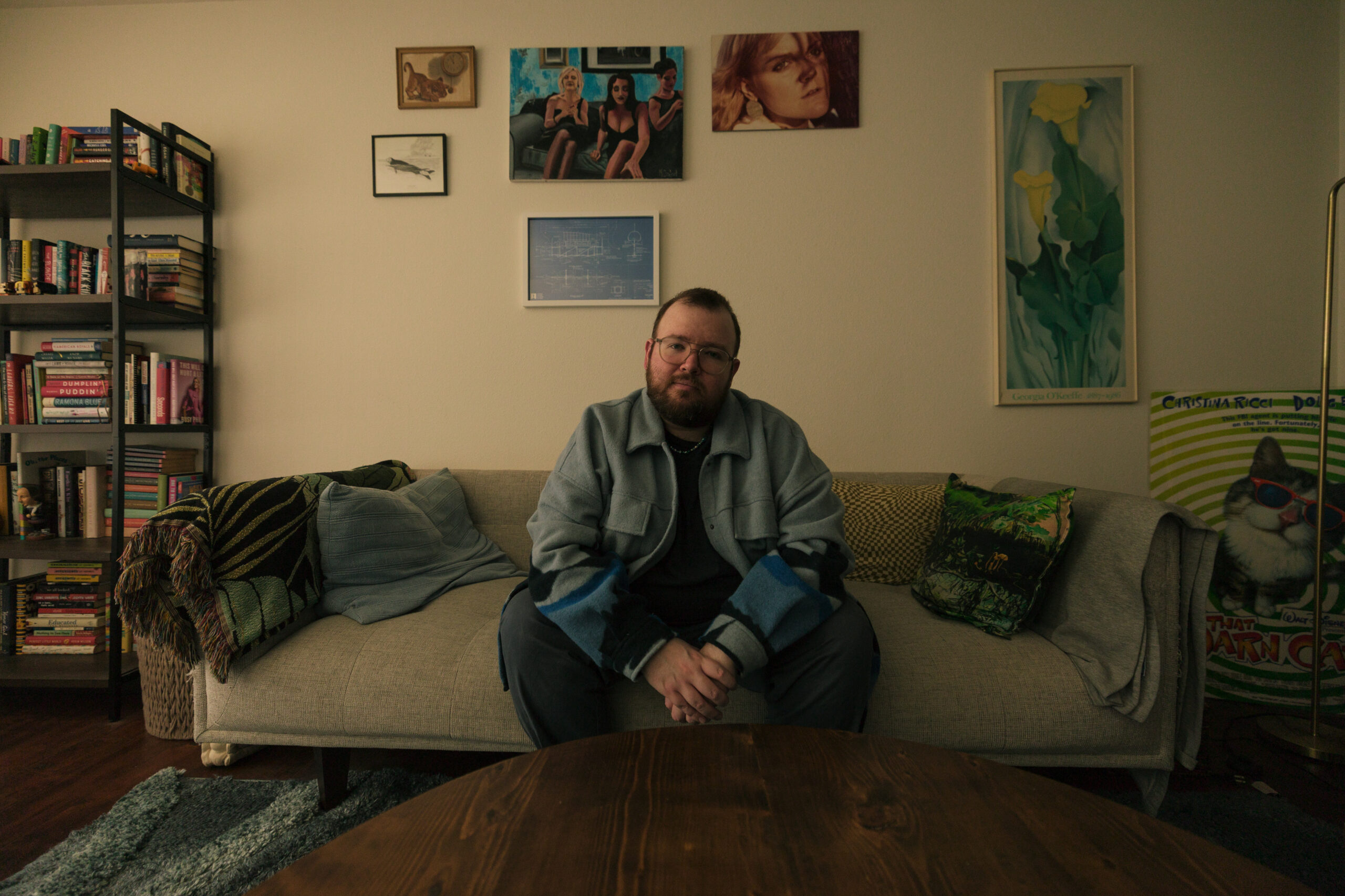
Bryce Fallon is one of many facing difficult choices due to the growing fallout of extreme weather events. Research has shown that renters are especially vulnerable to financial shocks from climate events: They receive less government assistance, are displaced more frequently and for longer, and suffer more severe negative impacts from extreme weather than homeowners.
Although Bryce’s home was spared, the wildfire still brought significant financial strain for them, including lost wages, unexpected costs, and the general sense of insecurity that this could happen again. Their story reinforces the need for stronger protections and targeted support that ensures households can recover and remain stable in the face of extreme weather events.
Share Your Story With Us
Our Human Stories spotlight the real-life experiences of people navigating disaster recovery, disability, career transitions, multigenerational living, and more – bringing fresh urgency to the financial challenges facing Americans today. Have a story to share? We’d love to hear from you.
Read More Human Stories
From Poverty to a College Degree: Angel’s Story
Without a financial safety net, one college graduate’s journey to a diploma was paved with setbacks and plenty of resolve.
Still Striving for Financial Independence: Becky’s Story
Entering adulthood has come with ‘curveballs’ that her parents never faced, and an increasingly uneven playing field to catch up.
600 Job Applications, No Offers: Zerui’s Story
After earning his master’s with honors last year, Zerui is getting by on low-wage work while he continues to apply for jobs. Still, he remains hopeful.
Explore More on Climate
Climate Disaster and Renters Insurance: Who’s Protected?
A new FinHealth Spend Spotlight finds many renters don’t hold renters insurance – and those who do still face climate-related risks.
Strengthening Financial Health for Climate Resilience
Climate hazards have massive financial impacts on households, especially ones that are already struggling. What do they need to be financially resilient in the face of a changing climate?
Exploring the Link Between Housing and Healthcare Costs and Weather Events
Households that experienced a weather event were also more likely to face a range of unexpected housing- and health-related expenses.
